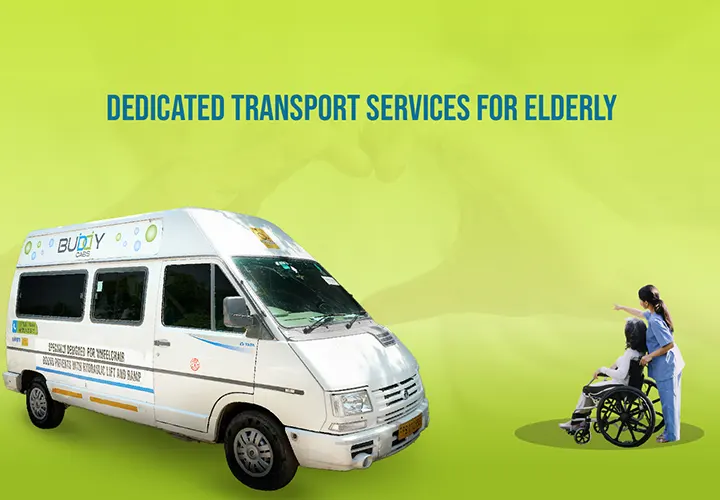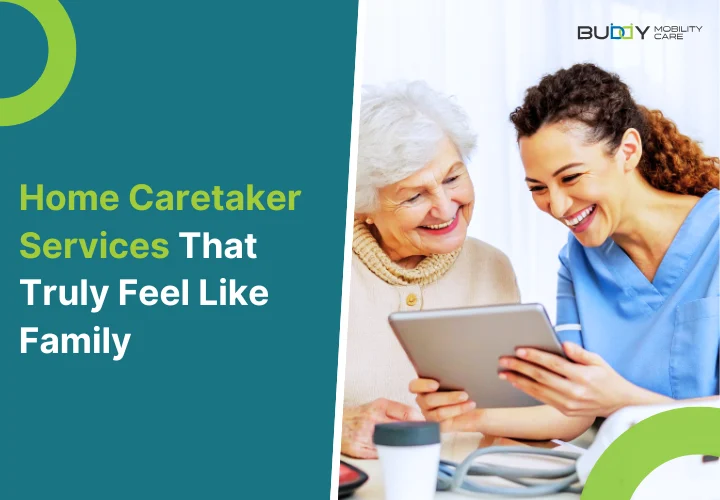Buddy Mobility Care: Bridging Gaps with Dedicated Transport Services for the Elderly
In an era characterized by rapid technological advancements and a fast-paced lifestyle, it’s easy to overlook the needs of our aging population. As societies age, the demand for specialized services catering to the elderly becomes increasingly apparent. One crucial aspect that often gets overlooked is the transportation needs of senior citizens. To address these issues, Buddy Mobility Care provides customized transportation services for the elderly. Their fleet of senior-friendly vehicles and specially trained drivers aim to keep older adults connected and active.
Understanding Senior Transportation Needs
The needs of elderly passengers go beyond basic pick-up and drop-off. Older riders may require additional assistance getting in and out of vehicles. Some use wheelchairs or walkers that need accommodation. With age often comes chronic health issues, meaning quick access to medical care is essential. Some key barriers faced by the elderly in utilizing transportation include:
- Physical limitations – Reduced mobility, visual impairments, and medical conditions can make using public transit difficult. Vehicles may not accommodate wheelchairs, walkers, etc.
- Cognitive declines – Dementia and memory loss make navigating transit systems challenging for some seniors.
- Limited service – Transportation options in rural and suburban areas are often inadequate. Infrequent service and long distances are obstacles.
- Cost – Fixed incomes make paying for rides and car maintenance difficult. Some forgo needed trips due to expense.
- Driving cessation – Giving up driving leads to dependence on others for rides or learning new transit systems. This transition is emotionally and logistically difficult.
- Lack of assistance – Many seniors need extra help boarding vehicles, reading signs, etc. Transit systems often fail to provide adequate aid.
- Safety concerns – The risk of falls, theft, and vulnerability using public transportation worries some elderly travelers.
- Isolation– Transportation barriers lead to social isolation, depression, and reduced well-being among the homebound elderly.
Benefits of Specialized Senior Transportation
Specialized transportation services designed around elderly passengers’ unique needs are changing lives across the country. These provide seniors with a way to stay active and engaged by making it easy to get to:
- Medical Appointments: Missing doctor visits and therapy due to a lack of transportation puts health at risk. Services like MediRides provide door-through-door travel to ensure seniors make it to critical care.
- Groceries & Errands: Having an accessible, reliable way to get shopping and run errands promotes independence in daily life. Seniors can maintain their normal routines.
- Social Outings: Specialized vans and buses with wheelchair lifts allow older adults to continue participating in their favorite activities. This improves mood and mental sharpness.
- Religious Services: Attending places of worship helps maintain continuity and community. Transportation assistance makes this weekly ritual possible.
- Recreational Excursions: Day trips give homebound seniors an enriching change of scene. Transportation companions provide safe, friendly assistance.
Key Features of Senior Transportation Services
Specialized transportation goes beyond friendly drivers, though they are essential. These key accommodations make senior transit comfortable, convenient, and safe:
- Door-Through-Door Assistance: Drivers escort passengers from their front door into the vehicle and then inside their destination. Some even help with umbrellas or packages.
- Wheelchair Lifts & Ramps: Makes boarding easy for wheelchair users. Drivers are trained in proper security.
- Walker/Cane Assistance: Handrails, steps, and seats simplify use for passengers with mobility aids. Drivers provide steadying hands.
- Escorts: Companions ride along in vehicles to provide extra assistance to seniors. Help with seatbelts, directions, and other needs.
- Preventive Maintenance: Regular vehicle inspections keep accessibility features like lifts in good repair. Drivers report issues promptly.
- Curb-to-Curb Monitoring: Drivers watch out for tripping hazards like uneven pavement. They park close to their destinations.
- Door-Through-Door Monitoring: Escorts ensure passengers make it inside smoothly and safely. Some wait until the return trip is needed.
Many elderly and disabled individuals face mobility challenges that can lead to isolation and reduced access to essential services. To address this need, innovative transportation services like Buddy Mobility Care provide dedicated, senior-friendly options. Like Buddy Mobility Care, Buddy Cabs trains its drivers to be compassionate companions who understand passengers’ unique needs. Their vehicles are equipped with wheelchair lifts, rotating seats, oxygen cylinders, and other accessibility features.
Buddy Mobility Care offers customized scheduling for medical visits, daily errands, social outings, and more. Their services promote independence and social engagement for the elderly and disabled. Companion caretakers are also available to assist passengers with tasks like household chores.
During the pandemic, Buddy Mobility Care converted vehicles into emergency transport to help COVID-19 patients get to hospitals. They also set up a small care facility in partnership with the local government. Feedback from customers highlights Buddy Cabs’ attentive, gentle, and skilled care. The service currently operates in several Indian cities and plans to expand across India. They also hope to hire women drivers and serve expectant mothers.
Together, Buddy Mobility Care and Buddy Cabs demonstrate how senior-friendly transportation can empower the elderly, disabled, and vulnerable. Their reliable, compassionate services help enhance accessibility, dignity, and quality of life for those they serve.




